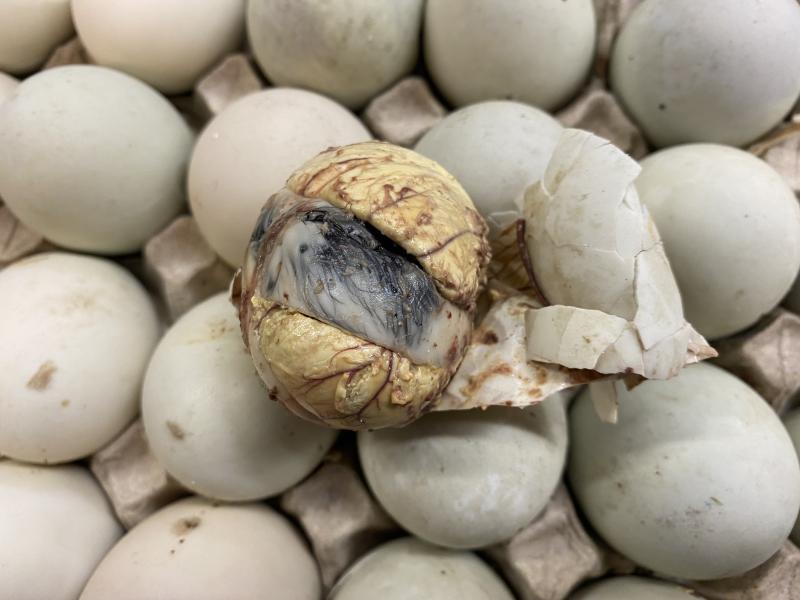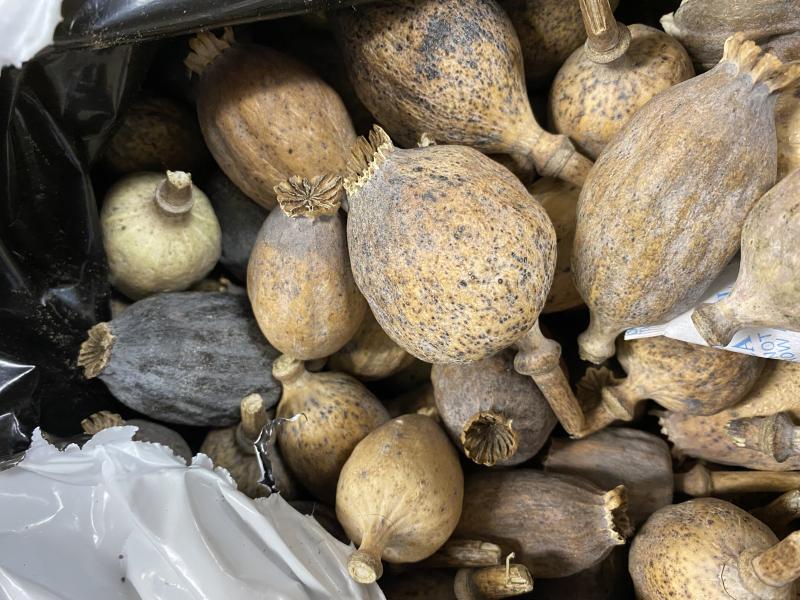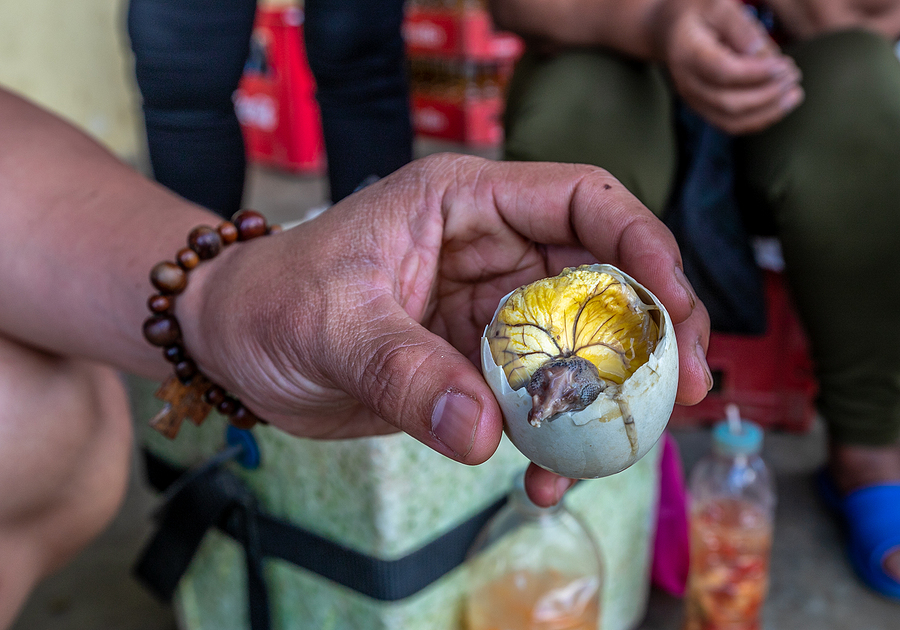HOUSTON – U.S. Customs and Border Protection employees working at Houston Field Office area ports discovered an assortment of prohibited and illegal items in luggage and cargo at airports in Houston and Austin.
CBP agriculture specialists conducting inspections at Bush Intercontinental Airport in Houston discovered 30

at Bush Intercontinental Airport in Houston
discovered 30 balut eggs and six star-apples in a
passenger’s luggage March 6.
balut eggs and six star-apples in a passenger’s luggage March 6. Balut eggs are different from eggs we purchase at a grocery store as they contain a developing duck embryo that may even be covered in feathers. Boiled and eaten from the shell, balut eggs are a popular food in the Philippines and parts of Southeast Asia. The eggs and apples were seized to prevent pests, such as the fruit fly and moth larvae, as well as animal diseases such as highly pathogenic avian influenza (HPAI) and Newcastle Disease, from affecting US agriculture. The passenger was issued a $300 penalty for failing to declare the items and the prohibited items were destroyed.
On the same day at Austin-Bergstrom International Airport, CBP agriculture specialists and officers examining arriving international cargo inspected a shipment of manifested “dried flowers.” Inside the packages, they found 5.7 pounds of Papaver sp. or poppy seed pods. While pods such as these are considered propagative material and are prohibited entry, they were ultimately seized by CBP officers. Poppy seed pods are a source of opium, which is a DEA Schedule II controlled substance considered to have a high potential for abuse and may lead to severe psychological or physical dependance. One week later, CBP officers discovered an additional 5.7 pounds of poppy seed pods in another shipment of “dried flowers” arriving from the United Kingdom and seized these items as well.

made multiple seizures of poppy seed pods.
“Customs and Border Protection places significant priority on agriculture inspections at all of our ports of entry,” said Houston Field Office, Director of Field Operations, Judson W. Murdock II. “CBP officers and agriculture specialists work in sync to prevent harm to US crops and vegetation as well as prevent potentially harmful drugs from entering into our communities.”
On a typical day in fiscal year 2021, CBP officers seized 4,732 pounds of drugs and CBP agriculture specialists discovered 264 pests at US ports of entry and 2,548 materials for quarantine: plant, meat, animal byproduct, and soil.
Please visit CBP Ports of Entry to learn more about how CBP’s Office of Field Operations secures our nation’s borders. Learn more about CBP at www.CBP.gov.
